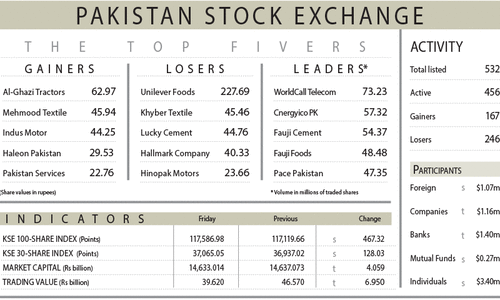RIYADH, Sept 6: The next Saudi Arabia’s move on its crude output strategy is eagerly awaited. With prices under pressure and calls from within Opec to have a close look at its current output practices, the Saudi stance on the issue remains crucial. The guessing game is hence on.
Riyadh meanwhile has kept its cards close to chest tactically avoiding any public position on the issue. The global energy fraternity thus remains on tenterhooks.
There is a growing feeling now that at Opec’s September 9 meeting in Vienna, Saudi Arabia may increasingly come under some pressure from within the Opec ranks to curtail its output so as to prevent any steep fall in crude prices.
Saudi Arabia has been underlining at the highest level its commitment, will and the ability to meet the growing needs of the market. At the Jeddah energy summit on June 22, the kingdom announced increasing output to 9.7 million barrels per day. The Saudi output was indeed considerably higher than its Opec quota.
As per Platts, the Organisation of the Petroleum Exporting Countries’ 13 members boosted their collective crude oil production by 300,000 barrels per day (b/d) in July to average 32.77 million b/d over the month.
And as was anticipated, in the meantime, the global crude markets started to respond to the rising output, softening the markets considerably. Tropical Storm Gustav notwithstanding, and despite blips here and there, the markets have been comparatively softer.
The extra Saudi and the Opec oil and the visible demand contraction in some of the major global economies in the West have helped prices go down. As per recent reports, the demand in the US, the world’s largest consumer, fell 800,000 barrels per day (bpd) on the year in the first half of 2008, the steepest fall in 26 years.
Similarly, in the world’s third largest consuming country Japan, the domestic oil product demand fell to its lowest in 19 years for the month of July. Oil product sales fell 3.5 per cent from a year earlier to 16.17 million kilolitres (kl), or about 3.28 million barrels per day (bpd), the second month of year-on-year decline, the Japanese Ministry of Economy, Trade and Industry said late last week.
The drop has prompted Opec price hawks Iran and Venezuela to suggest a cut in supplies. However, not every one seems to be toeing the line. Although there are some within the cartel, who may be eager to maximise their return from black gold, there are others too within the cartel looking at things in a broader perspective.
However, there is an interesting twist to this argument. Even if no formal output cut is announced, there is some possibility that some of the leading Opec members, currently producing beyond their quotas, could stifle some of the increased output. That in itself would have some sobering impact on the current market trends, one cannot deny.
Opec’s current production remains much higher than its target, industry estimates say, leaving plenty of surpluses that could be quietly removed should prices or demand fall sharply.
In August, Opec was pumping almost 1 million bpd more than its target of 29.67 million bpd, according to Petrologistics, a consultant which tracks Opec supply.
However, this very debate about the optimal Opec output is closely tied to the issue of the price level that Opec would like to defend. Opec has officially never indicated what price level it would like to defend. There are some indications though that oil has yet to approach a level that would worry Opec.
There are indications that the cartel may not react to lower prices until they fell below $80. In an interview in July, the Saudi King Abdullah was quoted as saying he wanted to see lower prices, though at that stage he did not specify the desired level.
Yet he emphasised that the kingdom was “already unhappy” with the rising price when it was around $100.
And for sure, the price right now is still above $100. Hence there should be no warning bells in Opec capitals at the current levels. And if the above line of argument is to be believed, then the Opec may well refrain from making any formal cut in output. Let’s keep guessing. Opec too enjoys the scenario!













































Dear visitor, the comments section is undergoing an overhaul and will return soon.